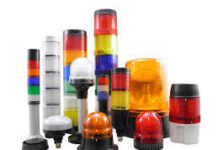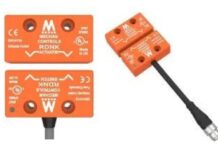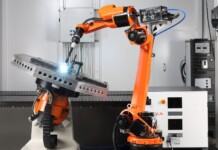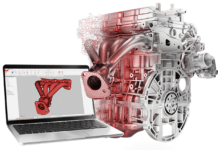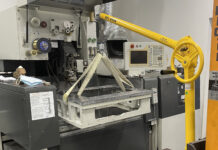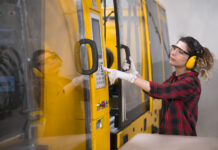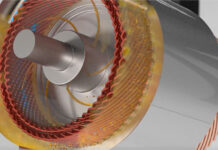High Speed Machining Demands High-End Toolholder
In high speed machining, choosing the right toolholder is the key to greater precision, longer tool life and decreased machining costs
As any machinist will tell you, when it comes to precision machining, the importance of a toolholder cannot be overstated. The quality of the toolholder plays an even greater role when precision machining at higher speeds.
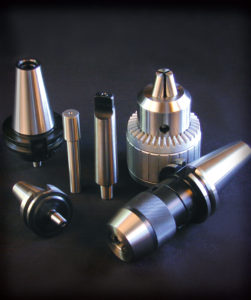 High speed machining is typically utilized in aerospace and medical equipment manufacturing where machinists often work with exotic alloys and harder metals like titanium.
High speed machining is typically utilized in aerospace and medical equipment manufacturing where machinists often work with exotic alloys and harder metals like titanium.
However, with RPMs reaching 20,000, 30,000 or even higher, the precise and secure seating of a properly balanced toolholder in the spindle becomes even more critical. At these rates of speed, even minor flaws in toolholder manufacturing can lead to less precise machining, reduced tool and spindle life and even damaged workpieces.
This is why it is important to understand the crucial role of a quality toolholder, which for tapered varieties boils down to two key factors: fit and concentricity.
Without any holding or locking mechanism, self-releasing toolholders must precisely fit within the spindle with only the smallest allowance to maintain accurate location, repeatability and proper hold.
The other factor, concentricity, refers to the amount of wobble that can occur when the toolholder is rotating or spinning. In machining, this is called “the whipping effect,” and can lead to inconsistent results and out-of-tolerance parts.
Decreased Tool Life and Damage To The Workpiece
Using a less precise or imported toolholder for high speed machining can also decrease tool life or cause damage to the workpiece.
“If the toolholder is not concentric or is a little off-center, you will have rubbing, wear, and more friction, which decreases the life expectancy of the tools,” explains Bart Fellin of Fellin Industrial Sales, a company that represents a variety of machine tools and toolholders.
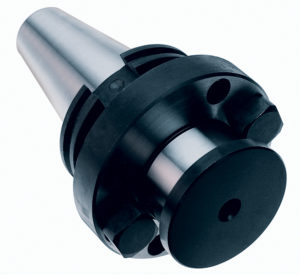 When machining exotic alloys and hard metals, cutting tools already must be changed out more frequently as they dull or break. The cost of tool replacement, not to mention loss of production time due to frequent changeover, can add up quickly.
When machining exotic alloys and hard metals, cutting tools already must be changed out more frequently as they dull or break. The cost of tool replacement, not to mention loss of production time due to frequent changeover, can add up quickly.
“The higher-end technical carbide inserts really demand a high-precision toolholder,” says Fellin. “If you end up breaking a tool it could cause hundreds of dollars’ worth of damage.”
“Not only is the tool expensive, but you have to change it out more often and that takes time,” adds Fellin. “So when you cost out a job, you may find you are over budget rather than making a profit. It can make or break a deal.”
Less precise or imported toolholders can also cause damage to the workpiece as well, which would then have to be repaired or thrown out.
“You could be spending hundreds of man hours designing a tool and then finding out that it is cutting slightly oversized holes, as an example, because the toolholder could not hold the tool properly,” says Fellin.
Quality Assurance
Fellin cautions against purchasing less expensive, imported toolholders based on price alone.
“There is a lot of competition from imports and a lot of misleading information where they claim their toolholder is just as good,” says Fellin. “But ‘time is money’ so when you have to get a quality part out and you don’t want it getting rejected, then you want to make sure the accuracy is going to be there.”
One way to ensure you are buying a quality toolholder is to look for its certification, which should be “AT3 or better.” AT3 refers to the tolerances related to the fit of the toolholder in the spindle.
Collis Toolholder is the only manufacturer to certify products AT3 or better. While some manufacturers claim to offer AT3 or better, Collis is the only one that certifies its toolholders through a rigorous process of quality control and metrology testing to ensure its toolholders meet that specification.
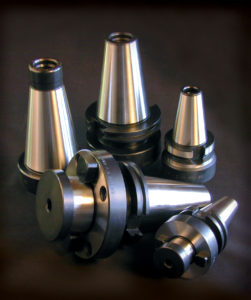 Collis Toolholder also places special emphasis on accurate concentricity. To prevent the aforementioned wobble or “whipping effect” from occurring, manufacturers often specify the level of unbalance by a G number with units in millimeters per second (mm/sec). This is why machine-tool spindles and machine-tool parts usually are specified with vibration levels of G2.5 and G6.3. This is also why Collis toolholders are balanced to the higher G2.5 standards.
Collis Toolholder also places special emphasis on accurate concentricity. To prevent the aforementioned wobble or “whipping effect” from occurring, manufacturers often specify the level of unbalance by a G number with units in millimeters per second (mm/sec). This is why machine-tool spindles and machine-tool parts usually are specified with vibration levels of G2.5 and G6.3. This is also why Collis toolholders are balanced to the higher G2.5 standards.
By producing tapered toolholders with a superior fit and greater balance, their toolholders can run at higher RPMs with less fretting, resulting in more accurate work and better surface finishes.
According to Fellin, in the aerospace and medical device industries OEMs are looking for repeatability in each toolholder as well.
“Being able to know that from the first toolholder they purchase to the fifth to the twentieth, they are going to get the same quality is very important,” says Fellin.
“You can always find someone in the industry that will provide a lower price, but there is usually a sacrifice in terms of quality,” concludes Fellin. “So, if you are looking for a toolholder, saving a few dollars for a no-name brand is not worth it. It will end up costing you a lot more in the long run.”
About Collis Toolholder Corporation
At the beginning of the 20th century a small pattern shop known as Collis Pattern Works was founded in Dubuque, Iowa. As sales grew and the expansion began, Collis added more equipment and more employees. The company was on the move. It occupied three additional locations in Dubuque before Clinton, Iowa was chosen as the new site in 1912. In this location the plant grew up to become one of the area’s leading industries. Since the founding, the high quality products manufactured are the result of experienced personnel and excellent facilities. The goal of this company known today as Collis Toolholder Corporation, remains the same: to produce high quality products utilizing knowledgeable professionals in order to continue to offer the latest in technology in this new millennium.
For more information about Collis Toolholder Corporation 41 23rd Avenue North, Clinton, IA 52732, call 800-334-6045; e-mail info@collistoolholder.com; or visit web site: www.collistoolholder.com.

